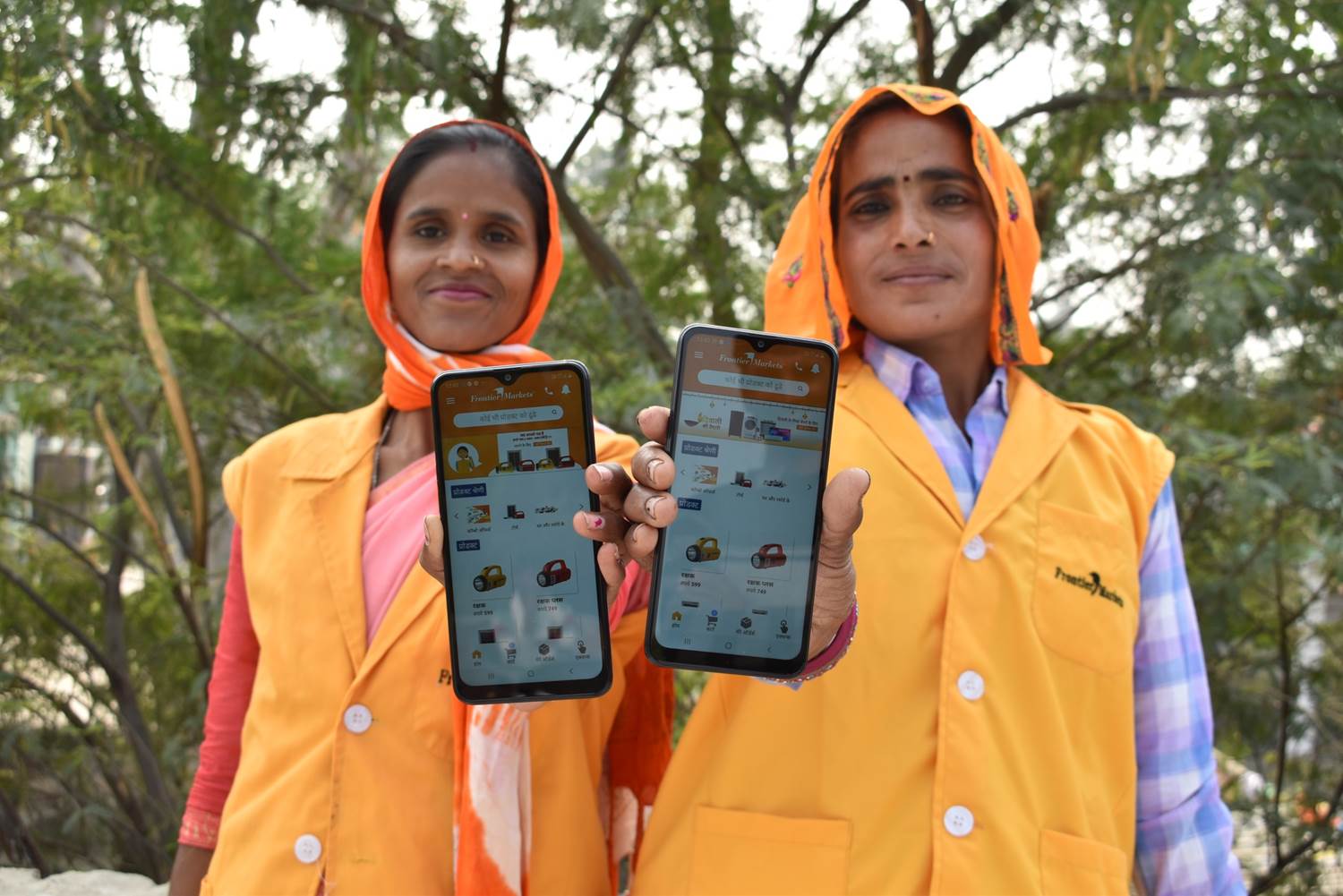
This Jaipur Woman Is Helping 10,000 Rural Women Earn Steady Income Through Her Startup
Writer: Rakshitha R
Rakshitha an engineer turned passionate journalist with an inclination for poetry, creative writing, movies, fiction, mountains and seclusion. Not a part of the social process but existential.
Rajasthan, 26 Feb 2021 2:05 PM GMT
Editor : Shubhendu Deshmukh |
Shubhendu, the quint essential news junky, the man who loves science and politics in equal measure and offers the complete contrast to it by being a fan of urdu poetry as well.
Creatives : Abhishek M
" An engineer by profession, Abhishek is the creative producer of the team, graphic designing is his passion and travelling his get away. In more ways than one, he makes the content visually appealing."
Ajaita Shah's 'Frontier Markets' uses a network of over 10,000 rural women entrepreneurs called Saral Jeevan Sahelis to market, sell, and service different products and services in over 2,000 villages across the country.
Often we come across products that are designed and manufactured, keeping in mind the specific needs of a particular section of society but are sold at places far away from the consumer's location. To resolve this issue, Ajaita Shah, an International Relations graduate from Tufts University, has started an all-women platform that helps high impact products and services reach the rural areas where the market for these product exists.
Ajaita's 'Frontier Markets' uses a network of over 10,000 rural women entrepreneurs called Saral Jeevan Sahelis to market, sell, and service different products and services in over 2,000 villages across the country. Through these Sahelis, the startup makes physical appliances, essential goods, and digital banking and financial services available in the rural markets and, in return, helps the women earn a stable income every month.
Jaipur based Frontier Markets is a platform that integrates e-commerce and local distribution supply to expose a rural consumer to a larger market with the help of women entrepreneurs, reported YourStory.
How Does It Work?
The company operates across 2,000+ villages in India, with 20 micro-distribution hubs. It manages about 10,000 Sahelis using the 'Meri Saheli app', to facilitate access to products and services in agriculture, home appliances, digital inclusion, clean energy solutions, essential services and finance to over 3,50,000 households.
Its products include clean energy appliances like solar lighting systems, agri-solutions- pulses, cattle feed, appliances, including home appliances, essential services, consumer electronics, and digital services that include consumer loans, online payments, doorstep ATM services, and 4G data.
The Meri Saheli app was designed three years ago. It features local languages, voice bots, voice to text, and an AI training bot to help women, even if they are not digital savvy, perform their tasks.
The Sahelis are trained to use the app to demonstrate the products they sell, facilitate online sales, and collect insights on what rural families require.
The app is also used for building an online and offline store experience and earn income for data collection, facilitation, and demand generation.
"Women are the trusted influencers of their village, bridging the gap between products and rural families," said Ajaita. She also added that it was not difficult to persuade women into this job as most of today's rural women want to remain independent and explore their strength and prove it to the world. "We did not have to persuade these women. They are out here on their own will, a will to bring change in their communities," added Ajaita.
The Sahelis are supported by local tech-enabled delivery and after-sales service team, ensuring that every customer gets their products at their doorstep within 48 hours.
The company enables Sahelis to work in their own villages and earn an income instead of travelling to far places.
In exchange for offering these services, the company earns income through the facilitation of sales, commission against products sold through its platform, and marketing fees for helping product companies test markets, etc.
The company claims that it has so far helped over 350,000 rural families raise $25 million worth of savings and earnings through its quality products. "Around 70 per cent of our customers are women. Today, over 10,000 Sahelis have earned over $15 million. They have invested this money in their children's futures, becoming leaders in their villages and voicing their community needs," claimed Ajaita.
How Did It Begin?
The startup began with addressing the need for clean energy in rural areas by bringing products such as lanterns and solar torches of various brands from last-mile distribution points. Their project kick-started in Rajasthan as there were energy challenges and a network of women who were willing to work. The startup set up operations in deep villages.
Building A Network Of Rural Women
The company had to localise the value chain by partnering with grassroots organisations to locally access rural households, communicate opportunities, deliver solutions, and track outcomes.
Likewise, they built a network of rural women entrepreneurs and set up local service centres, which became hubs for delivering solutions and proving after-sales service.
The company also connected with every customer to collect feedback and insights about their need, thereby becoming a customer-first, local delivery, and entrepreneur-driven platform.
Inspiration To Begin The Company?
After studying International Relations at Tufts University, Massachusetts, where she was exposed to microfinance, Ajaita moved back to India in 2005, where she worked with various organisations like the SKS Foundation, Ujjvan Financial Services, Swayam Krishi Foundation, and others. She started Frontier Markets in 2011.
It helped her understand various challenges that the rural communities, especially women, were facing when it came to accessing basic infrastructure, quality solutions, and means to address poverty- from electrification, clean water, telecom, to basic deliveries, etc. during her early days of working in the microfinance sector.
She went on to work with 5000 plus villages across the country, and challenges prompted her to work on addressing gender empowerment, social business etc. She also believed that every rural family should be treated as a dignified customer and receive access to quality solutions that help in solving daily challenges.
Some of the key aspects that she wanted to address include awareness cap- allowing rural communities to know about available quality solutions which can be alternatives to address challenges, access gap- which allows them to access quality durables where they lived, trust gap- as most rural families had access to low-quality solutions, product-fit gap- as most product companies did not provide customised solutions to rural communities and local livelihood gap- as local supply chains did not have job opportunities for rural families, especially women.
Like any other company, Frontier Markets also had its dark days due to the COVID-19 pandemic. However, despite that, the company pivoted and added agri-solutions for farmer families and invested in digital marketing along with scaling up a network of entrepreneurs and customer reach.
The company is planning to grow from 10,000 Sahelis to one million in the next few years and reaching about 300 million rural customers to become India's largest women-led commerce platform driving a bottom-up lens for product innovation.
Also Read: Kerala: Eight SDPI Workers Arrested In Connection With Killing Of 22-Yr-Old RSS Worker
 All section
All section














